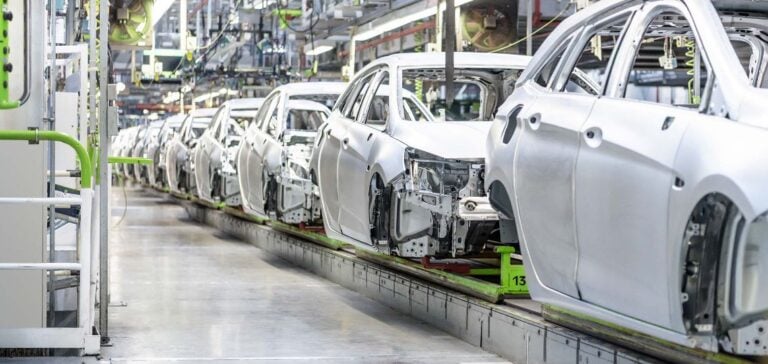The French government is intensifying its efforts to secure a delay in the sanctions that the European Union is set to impose on European automakers in 2025 if they fail to meet carbon dioxide (CO2) emission reduction targets. Antoine Armand, Minister of the Economy, expressed this stance in an interview with the economic newspaper Les Échos, highlighting the risks to the auto industry’s investments if the sanctions were upheld at this deadline.
For several years, European automakers have been working to reduce their carbon footprint by incorporating more electric vehicles into their ranges. However, the CAFE (Corporate Average Fuel Economy) standard, which enforces an annual average emission limit per car sold in Europe, is set to become stricter as of January 2025. This adjustment would lead to significant fines for companies that fail to align their emissions with the established targets.
A Deadline Criticized by the Industry
Automakers have voiced concerns over this deadline. Antoine Armand stated that these sanctions could harm the industry, especially at a crucial moment for the energy transition. “If we must impose enormous fines on automakers because they haven’t progressed quickly enough, the immediate consequence will be weakened investment and, above all, a boost to our Asian competitors,” he said.
In parallel, Marc Ferracci, Deputy Minister of Industry, also advocated for this delay in the German daily Handelsblatt. This joint stance aims to strengthen France’s argument with the European Commission and European counterparts.
Significant Decarbonization Efforts
According to French authorities, many automakers have firmly committed to electrification, and these efforts should be considered before applying penalties. French representatives have reminded that the automotive sector has made substantial progress in meeting the EU’s climate requirements, and that premature fines could hinder the transition to cleaner vehicles.
At the Paris Automotive Summit, the Minister of Economy had already suggested that the government was exploring options to avoid these sanctions. Emphasizing the “immense efforts” made by automakers, Antoine Armand called for a more flexible approach to support the industrial transition without compromising the competitiveness of European actors on the global stage.
Prospects for Negotiations in Brussels and Berlin
As part of the Eurogroup and Ecofin meetings in Brussels, Antoine Armand will meet with European counterparts to discuss this crucial issue. Meanwhile, Marc Ferracci will travel to Berlin for the 10th Franco-German Economic Day, where he will also defend the French stance with German partners. The discussions are expected to focus on balancing environmental goals with the economic challenges related to sustainable mobility transition.





















